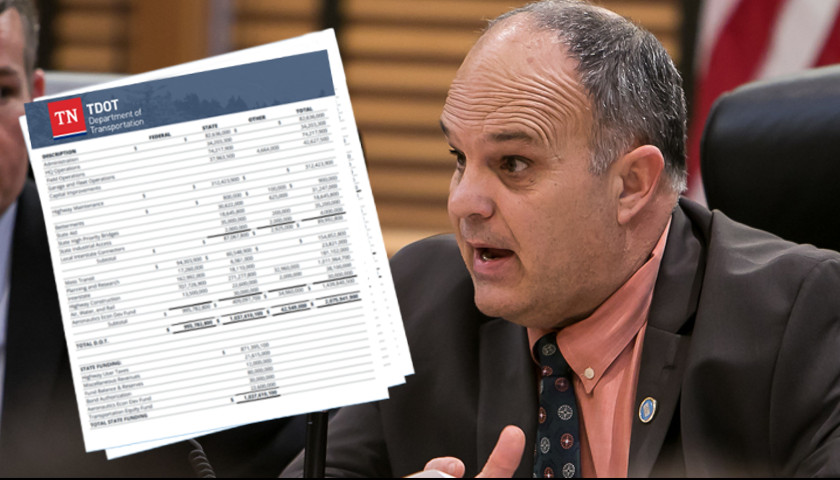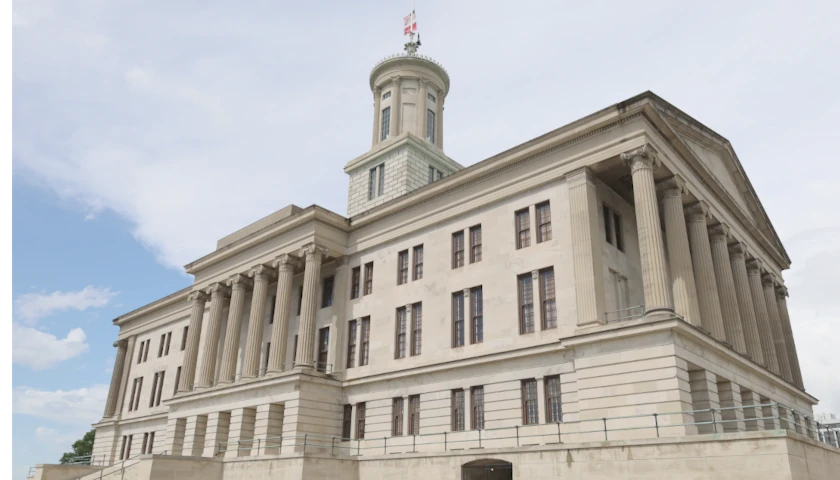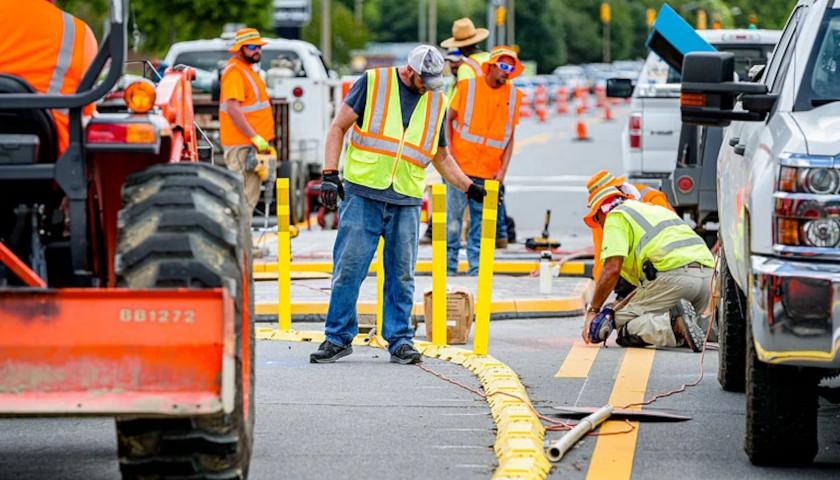During this session’s first meeting of the House Transportation Committee, chaired by Rep. Barry Doss (R-Leoma), the Tennessee Department of Transportation (TDOT) presented their budget for fiscal year 2019, revealing that the uncertainty surrounding the 47 percent of the department’s budget that comes from federal funding puts the 962 projects listed in the IMPROVE Act in jeopardy.
TDOT Commissioner John Schroer was joined by Chief Engineer Paul Degges and Chief Financial Officer Joe Galbato.
Degges and Galbato both gave overviews of their respective departmental areas, and were followed by Commissioner Schroer, who spoke on the uncertainty surrounding federal funding to TDOT. This is a result of the spending authorization that expires this week as well as the continued use of short-term spending authorizations.
Additionally, the federal FAST Act – Fixing America’s Surface Transportation Act, authorized in 2015 expires in 2020, which Schroer said “Gave us money they didn’t have.” Since they didn’t have all of the money to cover the “pay fors,” it may result in a rescission of that money in 2020, which totals $170 million for Tennessee.
TDOT CFO Galbato said that with the passage of the IMPROVE Act, the state is down from about 55 percent federal funding to about 47 percent, but that reliance is still much greater than states such as Florida, Texas and Utah who are all in the 20 percent range.
The federal trust fund, which is where Tennessee gets its highway funding from, is and has been insolvent for some time, according to Schroer, who speculates that President Trump’s infrastructure plan will be funded through a reallocation of the trust fund.
If that were to happen, it “will completely reduce the effects of the IMPROVE Act,” warned Schroer, adding that by 2020, “we will be back where we were two years ago.”
Rep. Ron Travis (R-Dayton), who voted for the IMPROVE Act, expressed concern that “We could have a problem with what we approved in the IMPROVE Act.” Travis continued, “When I voted for the IMPROVE Act last year, I said, ‘Look at these 9 projects that we’re going to complete.’ That’s what I sold.”
Doss, chief promoter of the IMPROVE Act 2017 Tax Cut Act, quickly came to the defense of TDOT saying about the federal government last year, “We were worried that they wouldn’t pass the highway bill,” and that it was “the same thing the year before,” and that it is “nothing new this year.”
The line of explanation by Schroer and Doss is in direct contradiction to the IMPROVE Act itself. The IMPROVE Act, codified as Public Chapter No. 181, not only specified the fuel tax and fee increases and what the increased revenues could be used for, as a form of commitment it itemized the 962 projects to be completed in all 95 counties.
Rep. Terri Lynn Weaver (R-Lancaster), who is a member of the House Transportation Committee and chairs the Transportation Subcommittee, told The Tennessee Star about including the list of 962 projects in the IMPROVE Act, “We want to know what we’re buying, so we put it in the bill,” but concluded, “Now we’re being told we’re not getting what we paid for.”
During the debate on the gas tax and fee increasing IMPROVE Act, Weaver was a supporter of funding roads, but cautioned against increasing taxes, because whatever is allocated, “It’s never, ever enough,” she told The Star.
Both Schroer and Doss encouraged state legislators to contact Tennessee’s federal delegation to improve and stabilize the funding.
John Mark Windle (D-Livingston) said he has heard concerns from Tennesseans who drive 50 miles to work on substandard two-lane rural roads while “Nashville gets things like transit money.” While Windle recognizes that “we need to take care of our economic hubs,” he agrees with the feedback he’s been getting. Windle resolutely told Chief Engineer Paul Degges that it’s not just a “perception problem,” as suggested by Degges as he explained that 70 percent of the state’s network of roads are rural, making it appear that there are less projects in rural areas.
At the request of Rep. Dale Carr (R-Sevierville), Degges elaborated on a recent “design build” project, where the contractor provided an alternative technical concept, resulting in a $17 million winning bid on a TDOT estimated $30 million ECD project with GM in Spring Hill. TDOT is utilizing more and more of these innovative tools to tighten timelines and reduce costs, according to Degges.
Other topics addressed between committee members and TDOT were the aviation fuel tax cap put in place for FedEx, which may have to be extended to Southwest Airlines, the availability of contractors in light of the many road projects underway, and the status of the state aid fund.
Representatives Bo Mitchell (D-Nashville), Barbara Cooper (D-Memphis) and Timothy Hill (R-Blountville), expressed appreciation for various projects in their respective districts.






Surely we citizens were not promised results that could not be delivered. Surely the supporters of the IMPROVE Act in the State Assembly were informed enough to realize that they were selling we taxpayers a pipe dream when they voted for this awful piece of legislation. I can only hope that the new governor will lead the charge to repeal the tax increases.